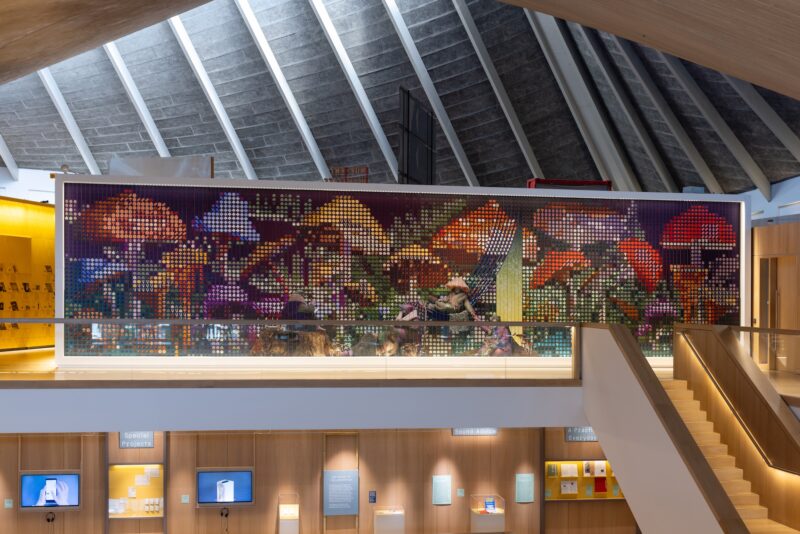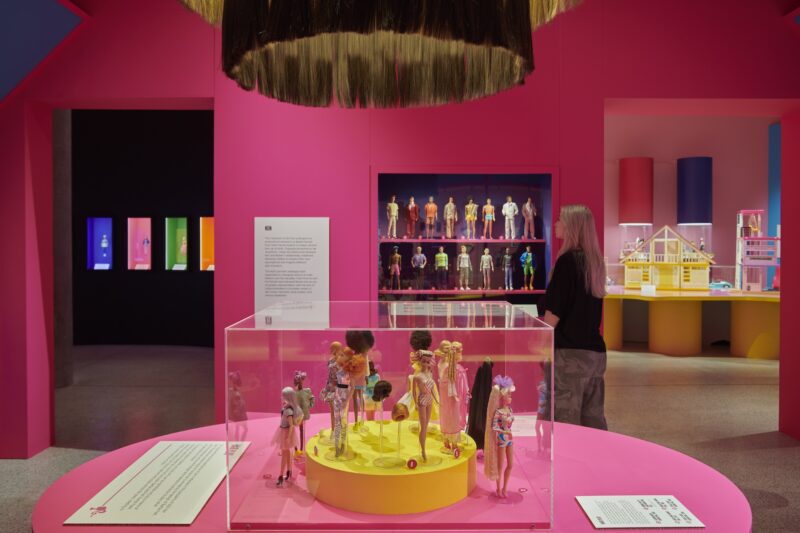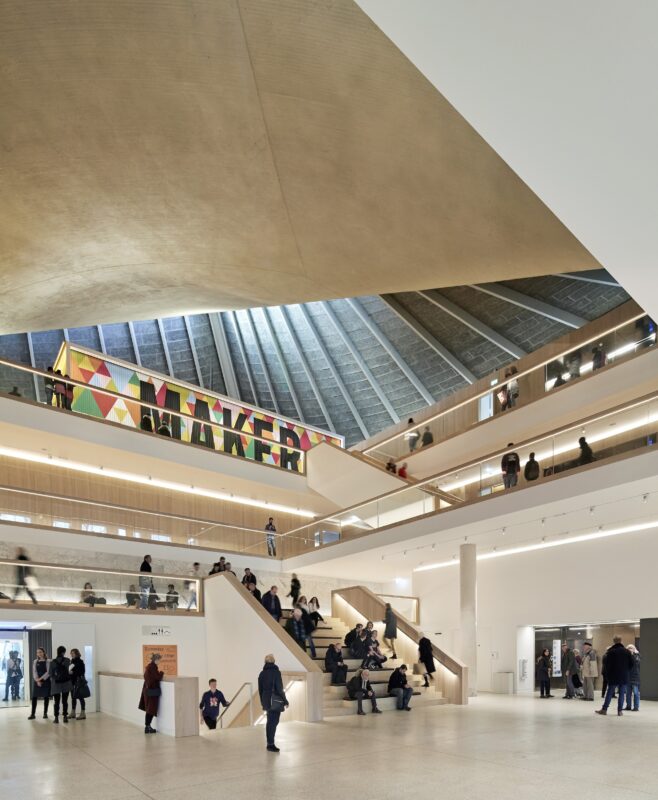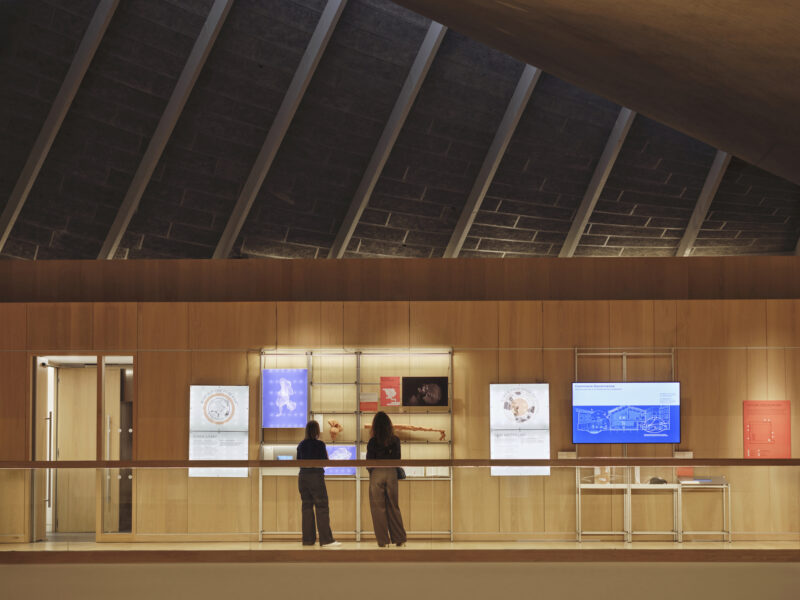The Design Museum today announces the acquisition of a garment from fashion brand Ahluwalia, for a new display – Tomorrow’s Wardrobe – that will open on 14th September.
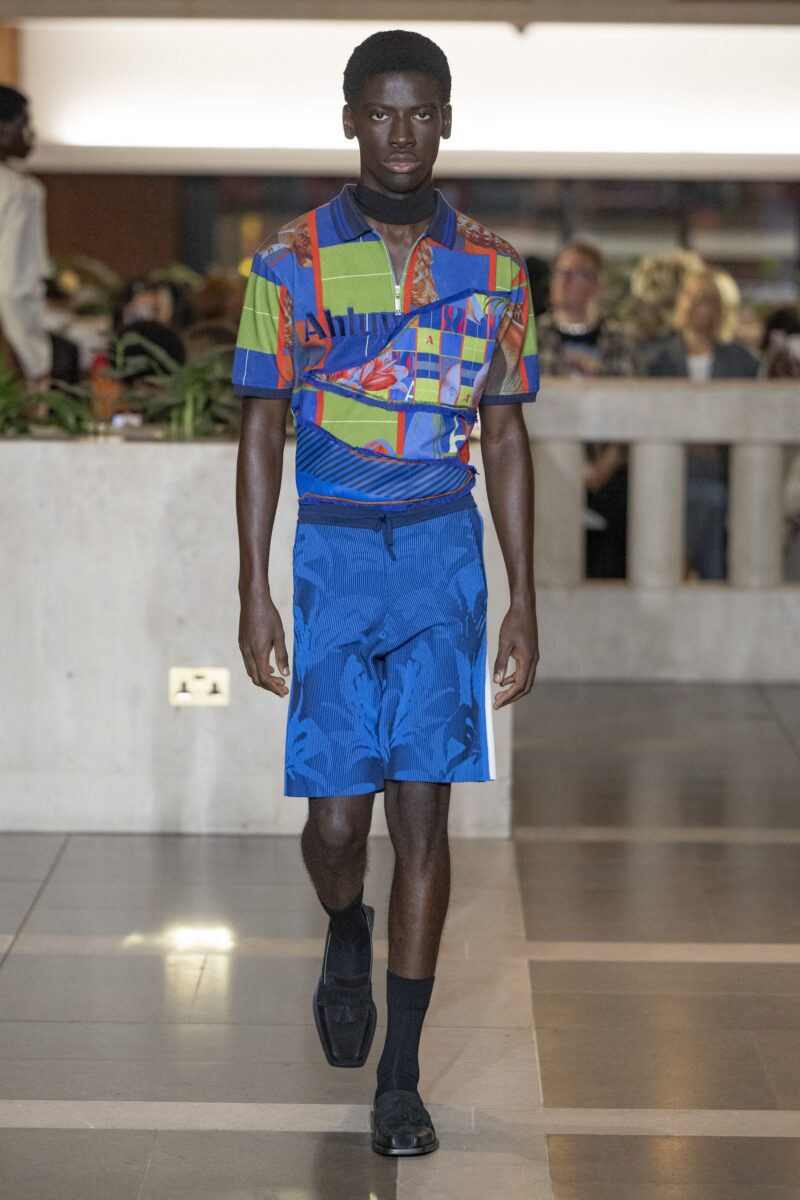
Opening to coincide with London Fashion Week and London Design Festival, Tomorrow’s Wardrobe will explore the potential for a more sustainable fashion industry. The display will look at initiatives across the production, design, and use of clothes to reduce the industry’s environmental and social impact.
This will be the second display in the museum’s new Future Observatory display space on its second floor, which platforms ongoing design research projects across the UK. Future Observatory is the Design Museum’s national research programme for the green transition, and aims to champion new design thinking on environmental issues by curating exhibitions, programming events, and funding and publishing research. Based at the museum, it is coordinated in partnership with the Arts and Humanities Research Council (AHRC), which is part of UK Research and Innovation (UKRI).
For the upcoming display, the Design Museum has acquired Ahluwalia’s Sahara Short Sleeve Polo for its collection in recognition of the brand’s commitment to sustainable fashion practices. Founded by Priya Ahluwalia in 2018, Ahluwalia is renowned for its use of vintage and surplus materials to create one-of-a-kind pieces. The colourful Polo shirt acquired by the museum is made from upcycled vintage sports tops that were sourced through Ahluwalia’s Circulate programme powered by Microsoft, which enables its community to contribute pieces from their wardrobes to the brand’s upcoming collections in return for credits towards their next purchase.
Priya Ahluwalia, Director and Founder of Ahluwalia, said:
Our mission at Ahluwalia is to create, innovate, and design while driving social and environmental change. This involves considering every aspect of the design process and working with responsible sourcing and manufacturing methods, as well as partners who are innovating in their field. Through our award-winning Circulate project with Microsoft, we demonstrated that partnership, technology, and community can come together to achieve this, creating commercially viable products that collaborate with partners and the Ahluwalia community. It’s so lovely to know that our customers value the story and craftsmanship behind every piece and embrace an ethos that celebrates individuality and responsible innovation. I’m excited to have a piece acquired by the Design Museum and to be part of its display, Tomorrow’s Wardrobe, showcasing the intersection of design and technology through the collaboration of diverse communities.
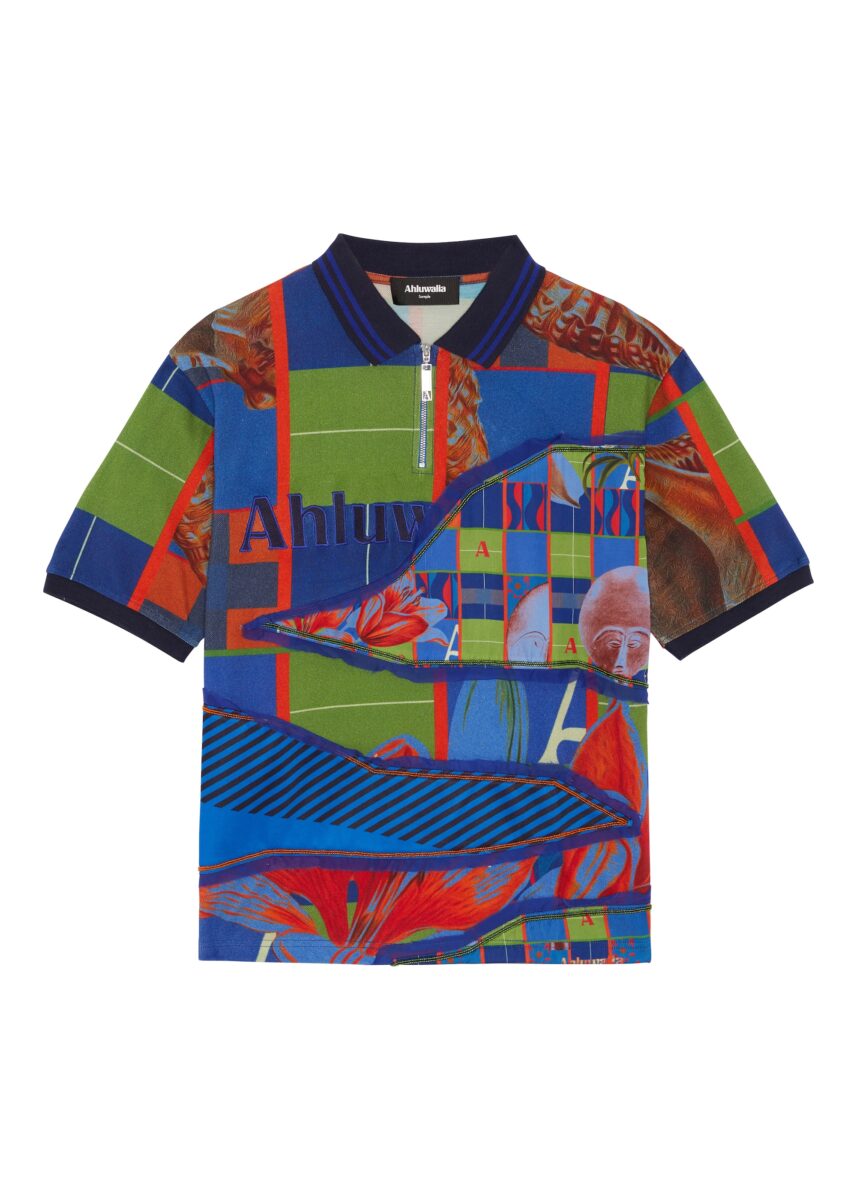
The fashion and textile industry is one of the most environmentally damaging design fields at work today, extending from the initial design stages to the way in which we consume clothes. Though a significant driver of the UK economy, the impact of the fashion industry is felt across the world in the form of waste, ecological degradation, pollution, systematic exploitation, and poor working conditions. The problem shows no signs of abating; annual garment production has doubled since 2000 and is expected to increase by 60% by 2030. The upstream supply chain has a high impact on the rest of the fashion ecosystem, with an estimated 80% of a product’s impact at design stage.
Tomorrow’s Wardrobe will showcase research taking place across different parts of the industry to reduce this damage: by cutting waste, innovating with new materials and methods, producing longer lasting clothes and changing how we – everyday wearers of clothes – think about what ends up in our wardrobes.
The display centers around four sections, taking the visitor along the design journey from the studio, to the factory, to their own wardrobes. The first section introduces visitors to the scale of the problem caused by the fashion industry, and the urgent need for change. Visitors will be able to explore a commissioned interactive tool to learn more about fabrics and textiles, made as a collaboration between UAL researcher Laetitia Forst and graphic design studio ACRE.
The following section focuses on the production of fabrics, materials and textiles. Visitors will learn about the UK as a productive landscape where materials for clothing are being grown, farmed, harvested, spun and weaved in ways which support thriving biodiversity. Projects on display in this section will include the work of Ponda, who have developed a regenerative fiber for use in puffer jackets from plants grown in wetlands, as well as the early results of their ongoing collaboration with Stella McCartney.
The third section looks at the new ways in which designers are working to reduce their environmental impact. Visitors will learn about how high-tech innovations such as artificial intelligence and robotics are blending with low- tech solutions such as design for disassembly and upcycling to define the fashion studio of the future. It will feature Ahluwalia’s upcycled piece, as well as a collaboration between outerwear brands Ranra and Salomon.
The final section of the display explores how our relationship with our clothes is changing in the context of the climate emergency. Visitors will explore ways to extend the lifecycles of their clothes through repair, as well as trace their material backstories through ‘digital IDs’. This section features 3D-scanned and printed footwear from Vivobarefoot.
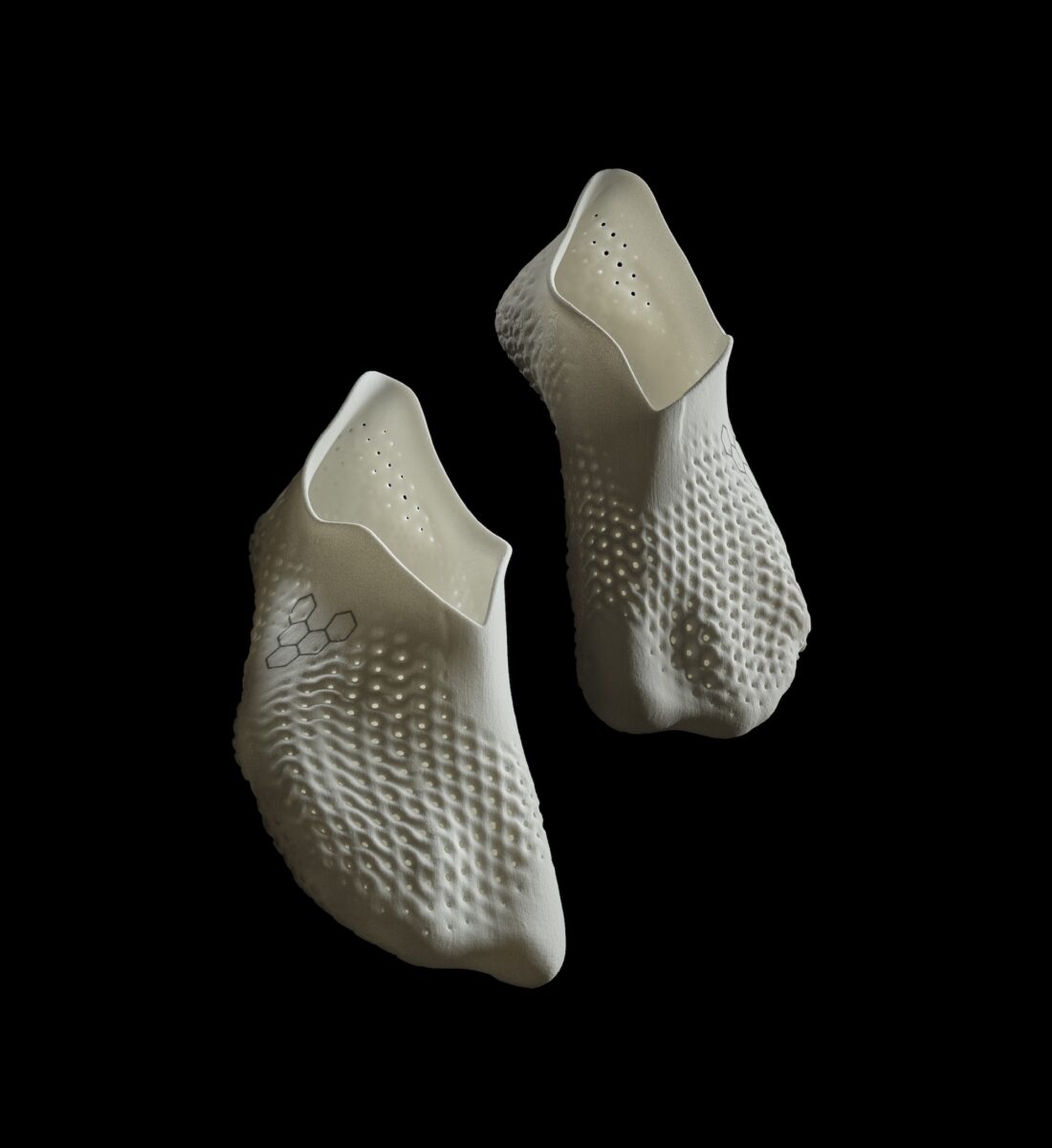
The display has been supported by curatorial advisors Kate Goldsworthy (UAL), Jalaj Hora (Nike) and Susan Postlethwaite (Manchester Metropolitan University).
George Kafka, Curator of Tomorrow’s Wardrobe, said:
Ahluwalia’s Sahara polo shirt is a timely addition to the Design Museum’s collection, signalling a moment in which designers – and particularly fashion designers – are centring envrionmental considerations in their work. With its repurposed fabrics from vintage sportswear, the shirt makes these considerations visible in ways that are both sustainable and stylish. Priya Ahluwalia is part of a wave of designers and researchers who give us significant cause for hope in spite of the major environmental challenges both faced and caused by the fashion industry in the UK. From studios such as Ahluwalia giving upcycling the catwalk treatment, to sheep farmers and 3D printers, the Future Observatory team at the Design Museum is pleased to be shining a light on the timely work being done to design a better future for fashion.
Tomorrow’s Wardrobe
14th September – August 2025, Future Observatory Display, 2nd floor, the Design Museum
Tickets: Free (no booking required)
